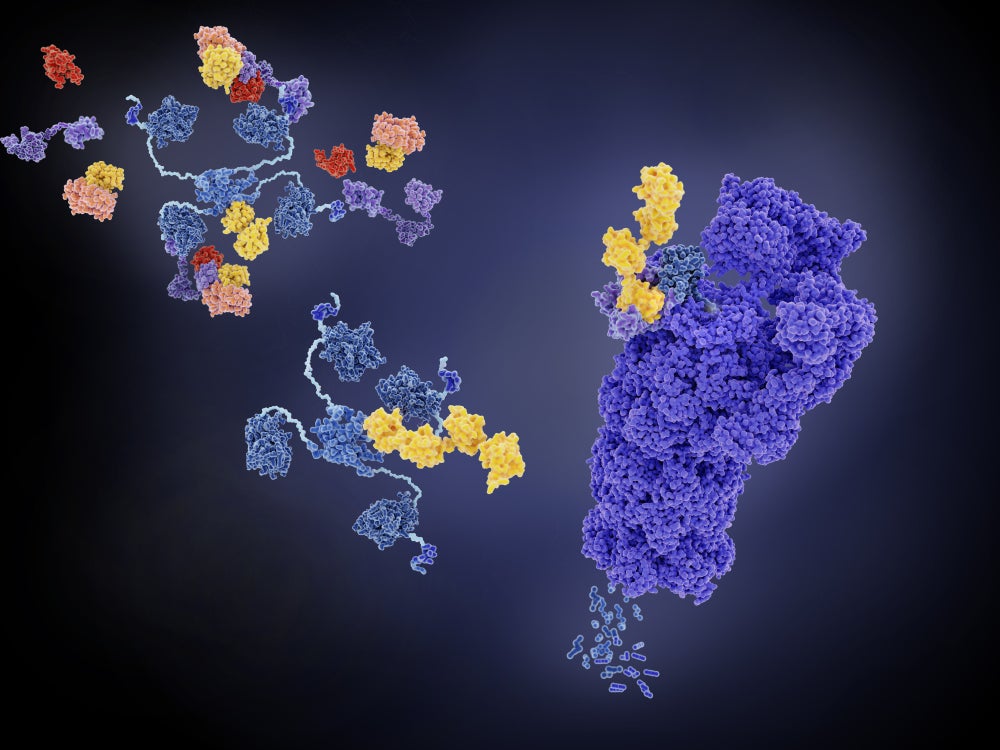
Clinical-stage biopharma Kymera Therapeutics has announced that the US Food and Drug Administration (FDA) has granted KT-253 orphan drug designation for treating acute myeloid leukaemia (AML).
KT-253 is a highly potent and selective degrader. It targets MDM2, the regulator of common tumour suppressor p53. The p53 protein remains intact in nearly half of all cancers, retaining the ability to limit cancer cell growth, Existing inhibitors manage to improve p53 expression, but in turn, also increase MDM2 and limit its efficacy.

Discover B2B Marketing That Performs
Combine business intelligence and editorial excellence to reach engaged professionals across 36 leading media platforms.
A phase I study (NCT05775406) of KT-253, initiated in March 2023, is currently ongoing. It is evaluating the safety, tolerability, pharmacokinetics, and pharmacodynamics of KT-253 in patients with relapsed or refractory high-grade myeloid malignancies, including AML, acute lymphocytic leukaemia (ALL), lymphoma and solid tumours.
Kymera claims that KT-253 is able to avoid an increase in MDM2 and kill cancer cells, even with brief exposures. As a result, it is being explored for AML, as well as a variety of other liquid and solid tumours.
Kymera Therapeutics founder, president and CEO Nello Mainolfi welcomed the designation, hailing it as “a significant opportunity to deliver an important new medicine” that can target a protein that conventional medicines had often struggled with.
This marks yet another protein degrader developed with the company’s proprietary drug discovery platform, Pegasus. Kymera claims that Pegasus can harness the body’s innate protein recycling machinery to degrade dysregulated, disease-causing proteins. Currently, the company is pursuing programmes to target IRAK4, IRAKIMiD, and STAT3 within the IL-1R/TLR or JAK/STAT pathways. It hopes to produce treatments for a variety of immune-inflammatory diseases, hematologic malignancies, and solid tumours.

US Tariffs are shifting - will you react or anticipate?
Don’t let policy changes catch you off guard. Stay proactive with real-time data and expert analysis.
By GlobalDataPreviously, Sanofi paid $150m for a multi-programme collaboration with Kymera. The agreement, eligible for additional payments of up to $2bn, is intended to develop and commercialise IRAK4 protein degraders like KT-474. Results from a Phase I trial (NCT04772885) published in May 2023 showed promise for KT-474 in treating hidradenitis suppurativa and atopic dermatitis. A Phase II trial is expected to commence later this year.
Kymera also partnered with Vertex Therapeutics in a $70m deal. The two companies will work together to develop various protein degradation medicines, with Vertex having an option to exclusively license discovered molecules.




